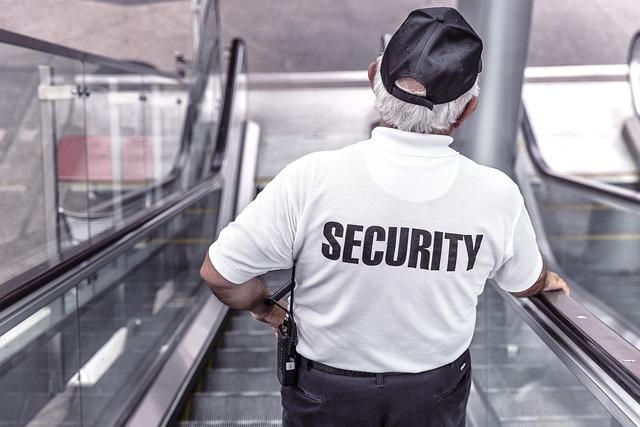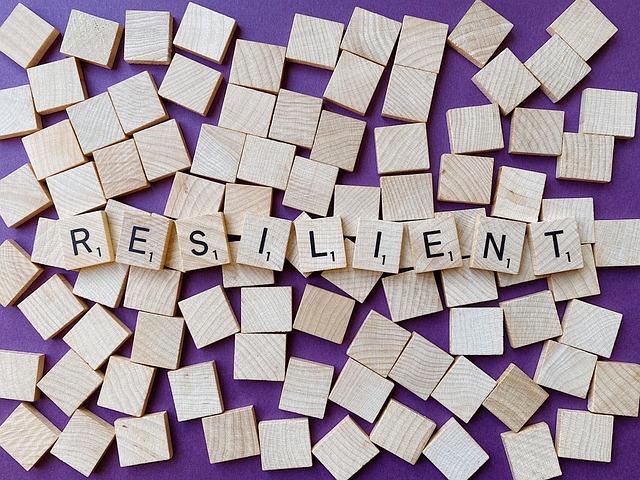Resilience Amidst Turmoil: Pakistan’s Fight Against Terrorism
In a world where the specter of terrorism looms large, Pakistan stands at a crossroads, grappling with the complexities of security, identity, and resilience. Nestled at the intersection of Central and South Asia, this diverse nation has faced a barrage of challenges that have tested its very fabric. From the rugged, mountainous terrains of the northwest to the vibrant urban landscapes of Karachi and Lahore, Pakistan’s journey through turmoil has been marked by both tragedy and tenacity. In this exploration of Pakistan’s ongoing struggle against terrorism, we delve into the historical roots of conflict, the indomitable spirit of its people, and the multifaceted approaches undertaken to restore peace and stability. As the nation strives to redefine its narrative amidst chaos, the story of resilience emerges—one of hope, unity, and a relentless quest for a future unshackled from the chains of violence.
Resilience in the Face of Adversity: Understanding Pakistans Historical Struggles with Terrorism
Pakistan’s journey through the tumultuous landscape of terrorism has been a testament to its enduring spirit. Over the years, the nation has faced numerous challenges, marked by violent extremism and the impact of geopolitical factors. Key events such as the rise of militant groups in the 1980s, the aftermath of the Soviet-Afghan War, and various catastrophic incidents like the 2008 Mumbai attacks have profoundly shaped the country’s socio-political environment. The response to these crises has not only involved counter-terrorism operations but also an awakening of national unity against the scourge of extremism, highlighting the country’s ability to adapt and respond to shifting threats.
In the face of ongoing challenges, the resilience of the Pakistani people is underlined by their collective determination to overcome adversity. Efforts to restore peace have led to significant initiatives and reconciliatory measures, including:
- Strengthening law enforcement agencies
- Community engagement programs to counter radicalization
- Collaboration with international partners for intelligence sharing
Through these strategies, Pakistan has embarked on a multifaceted approach to rebuilding and fortifying its societal foundations, paving the way for a future where stability and security prevail. The lessons drawn from historical struggles serve as a powerful reminder of the nation’s capacity for renewal, revealing a deep-seated resilience that continues to inspire hope amid turmoil.

Grassroots Movements: Empowering Communities to Combat Extremism
Grassroots movements have emerged as a powerful force in Pakistan’s overarching struggle against extremism. By engaging local communities, these initiatives harness the collective strength and resilience of individuals who are often disproportionately affected by violence and terror. Community workshops, awareness campaigns, and youth engagement programs have become essential tools in fostering unity and promoting a culture of peace. This localized approach not only empowers citizens to reclaim their identity but also cultivates a sense of accountability that is crucial in countering extremist ideologies.
The impact of these grassroots efforts can be seen through various success stories that highlight the transformative power of community involvement. Key strategies include:
- Establishing dialogue platforms to enhance understanding among diverse groups
- Encouraging local leadership to take initiative in promoting social cohesion
- Utilizing art and culture as mediums to convey messages of peace and resilience
By providing a framework for activism and support, these movements enable communities to stand firm against radical narratives and foster an environment conducive to healing and recovery. For instance, local committees that focus on educational outreach not only deter youth from joining extremist groups but also instill a sense of belonging and purpose.

Strengthening Security Frameworks: A Multi-Layered Approach to National Defense
In the ever-evolving landscape of national defense, a comprehensive and multi-layered security framework is essential to counteract the threats posed by terrorism. For Pakistan, this means integrating various components that work synergistically. Key elements of this approach include:
- Intelligence Gathering: Enhanced surveillance and data analysis to identify potential threats before they materialize.
- Civic Engagement: Strengthening community relations to foster resilience and support for counterterrorism initiatives.
- Legislative Support: Enacting laws that bolster the penal system’s capability to prosecute and deter terrorism effectively.
- International Cooperation: Collaborating with global partners to share intelligence and resources in the fight against terrorism.
- Technological Advancements: Investing in cutting-edge technology to monitor and respond to threats more efficiently.
Moreover, the importance of a robust civilian infrastructure cannot be overstated. Addressing socio-economic disparities is pivotal in reducing the allure of extremism. A targeted approach may include:
| Focus Area | Strategy |
|---|---|
| Education | Implementing quality education programs to foster critical thinking and civic responsibility. |
| Employment | Creating job opportunities through entrepreneurship and vocational training initiatives. |
| Healthcare | Improving access to healthcare to mitigate issues that can lead to discontent and unrest. |
These layered strategies form a holistic defense in depth, ensuring not only immediate safeguarding but also the long-term stabilization of society, equipping Pakistan to confront the challenges of terrorism head-on.

Building Bridges: The Role of International Cooperation in Pakistans Anti-Terrorism Strategy
In the complex landscape of counter-terrorism, international cooperation serves as a vital pillar in the formulation and execution of Pakistan’s anti-terrorism strategy. Countries across the globe understand that terrorism knows no borders, making collaboration essential in sharing intelligence, resources, and best practices. Through strategic alliances and multilateral forums, Pakistan engages with nations facing similar threats to establish a united front. This partnership extends to joint training exercises, intelligence sharing agreements, and comprehensive dialogues that emphasize the importance of strong ties. Key aspects of these collaborations include:
- Intelligence Sharing: Accelerating the flow of critical information to preempt threats.
- Joint Operations: Conducting coordinated military and law enforcement actions against extremist networks.
- Capacity Building: Strengthening Pakistani security forces through shared knowledge and resources.
- Policy Harmonization: Aligning strategies to counter radicalization and promote stability.
Furthermore, regional cooperation has become increasingly important, as Pakistan works alongside neighboring countries to foster stability and address common security challenges. Initiatives like the South Asian Association for Regional Cooperation (SAARC) allow member states to collaboratively tackle terrorism. These engagements promote dialogues that not only focus on military aspects but also address underlying socio-economic issues that contribute to extremism. Below is a brief overview of the current regional cooperation mechanisms:
| Mechanism | Description | Participating Countries |
|---|---|---|
| SAARC | Regional organization aimed at promoting economic growth and cultural exchange. | Afghanistan, Bangladesh, Bhutan, India, Maldives, Nepal, Pakistan, Sri Lanka |
| China-Pakistan Economic Corridor | Project enhancing economic ties while addressing security issues. | Pakistan, China |
| Quadrilateral Coordination Group | Focus on peace negotiations in Afghanistan involving regional stakeholders. | Pakistan, Afghanistan, U.S., China |
The Way Forward
As the tides of turmoil continue to shape the narrative of Pakistan, the resilience of its people echoes through the valleys of hardship and uncertainty. The fight against terrorism is not solely a battle against external threats but also an invitation for introspection and unity among its citizens. Each step toward peace and stability serves as a testament to the indomitable spirit of a nation striving to reclaim its narrative.
In this ongoing struggle, education emerges as a powerful weapon, fostering awareness and hope among the youth. Communities stand resilient in the face of adversity, drawing strength from their shared history and collective aspirations. As the country navigates the complexities of its reality, collaboration and dialogue become paramount, uniting diverse voices in the quest for a safer tomorrow.
The road ahead remains fraught with challenges, yet the story of Pakistan is one of tenacity and courage. Armed with determination and a vision for a brighter future, the nation continues to rise, reminding us all that hope can flourish even in the darkest of times. As we conclude this exploration of resilience amidst turmoil, we are left pondering: what narratives will emerge from this struggle, and how will they shape the identity of a nation poised for renewal? Only time will tell, but for now, the heart of Pakistan beats strong, unwavering in its pursuit of peace.



